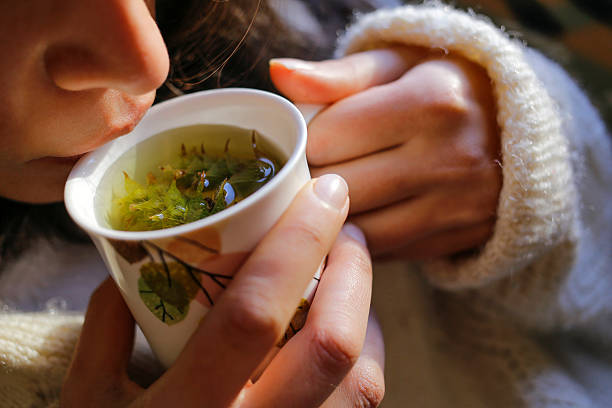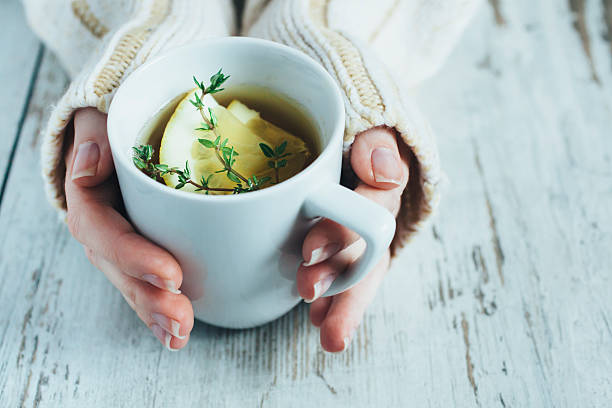
Winter brings its share of cozy evenings and holiday joy, but it also delivers cold winds, sniffles, and low energy. Luckily, nature has equipped us with a treasure trove of remedies to not just survive but thrive in the colder months. Let’s explore the 10 essential herbs to survive the winter season, their unique benefits, and how to seamlessly incorporate them into your routine.
1. Ginger: Nature’s Heater
This fiery root has been trusted for centuries to boost circulation and fight off winter chills. Ginger not only warms you up but also helps relieve sore throats, nausea, and congestion. Add it to teas, soups, or even bake it into cookies for a spicy twist.
Did you know? Ginger has anti-inflammatory properties that can help soothe stiff winter joints.
2. Turmeric: The Golden Shield
Turmeric’s vibrant color isn’t just for show—it’s packed with curcumin, a compound known for its powerful anti-inflammatory and antioxidant benefits. Golden milk, a warm blend of turmeric, milk, and spices, is a classic winter drink to soothe the body and soul.
Pro tip: Pair turmeric with black pepper to enhance curcumin absorption and maximize its health benefits.
3. Thyme: The Winter Defender
Thyme is the unsung hero of respiratory health. Its antimicrobial properties make it excellent for warding off infections and soothing coughs. Infuse it in hot water with honey or add it to your favorite roasted vegetable dishes for a savory kick.
Fun fact: In the Middle Ages, thyme was placed under pillows to ward off nightmares. Perfect for a restful winter night!
4. Echinacea: The Immunity Boost
A staple in natural medicine, echinacea is your go-to herb for preventing and shortening colds. Its purple petals may look delicate, but it packs a punch when brewed as tea or taken as a tincture.
Quick tip: Start using echinacea at the first sign of illness to maximize its effectiveness.
5. Peppermint: The Cool Healer
While winter may already feel “cool,” peppermint adds a refreshing twist to your wellness routine. Known for its ability to relieve congestion and soothe headaches, peppermint tea is a must for combating winter blues. You can also use it in desserts for a festive touch.
Did you know? Peppermint oil can be used in steam inhalation to clear blocked sinuses.
6. Cinnamon: The Spice of Warmth
This sweet and warming spice is the embodiment of winter. Known for its ability to regulate blood sugar and improve circulation, cinnamon also adds depth to drinks like hot chocolate or mulled cider. Sprinkle it over oatmeal or add a stick to your morning coffee for an instant pick-me-up.
Fun fact: Ancient Egyptians used cinnamon in embalming rituals—talk about a spice with history!
7. Sage: The Throat Soother
Sage isn’t just for your Thanksgiving stuffing—it’s a powerful herb for soothing sore throats and reducing inflammation. Brew a cup of sage tea or use it in a gargle to calm irritation.
Interesting tidbit: Sage has long been considered a symbol of wisdom and longevity. Ancient texts even refer to it as the “Savior Herb.”
8. Rosemary: The Aromatic Energizer
Rosemary is more than a fragrant herb for roasts; it’s a circulation booster that also supports mental clarity. Add fresh sprigs to soups and stews, or infuse them in oil for an aromatic cooking base.
Did you know? Ancient Greeks believed rosemary could improve memory, and students often wore it in their hair during exams.
9. Garlic: The Winter Warrior
Garlic is your ultimate ally against winter illnesses. Its sulfur compounds have natural antibiotic properties that help fight colds and flu. Whether minced into soups or roasted whole, it’s a delicious way to stay healthy.
Pro tip: For maximum potency, let minced garlic sit for 10 minutes before cooking to activate its health-boosting compounds.
10. Chamomile: The Sleep Whisperer
Chamomile is the perfect herb to wind down on a cold winter night. Known for its calming properties, it eases stress, improves sleep, and even aids digestion. Sip it as a tea or add dried chamomile flowers to a relaxing bath.
Fun fact: The name “chamomile” comes from the Greek word meaning “ground apple,” a nod to its sweet, apple-like aroma.
Winter Survival with Herbs
These 10 essential herbs are not just remedies; they’re traditions steeped in history, science, and a touch of magic. Whether you’re fending off a cold, warming up your body, or lifting your spirits, there’s an herb for that.
Stock your kitchen with these herbal wonders and experiment with teas, tinctures, oils, or culinary creations. Winter may be cold, but with these herbs in your arsenal, it will never be dull.
What’s your favorite winter herb? Share your tips and recipes in the comments below—we’d love to learn from you!
#HerbalRemedies #WinterHealth #StayWarm


